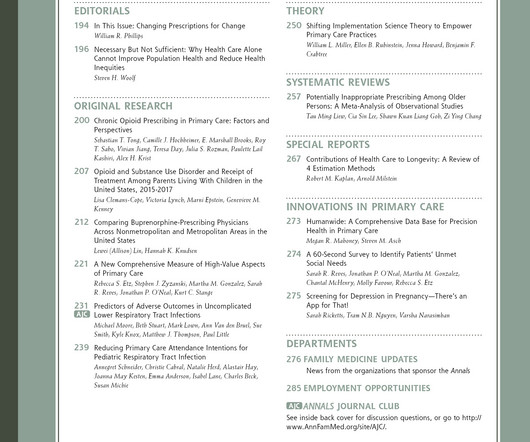Effects of the COVID-19 pandemic on primary care for diabetes in Canada: Results from a mixed-methods study [Health care services, delivery, and financing]
Annals of Family Medicine
NOVEMBER 20, 2024
Context: In Canada, most diabetes care is provided within primary care. Objective: To understand if the pandemic resulted in changes in care for patients with diabetes. 2) Qualitative interviews were conducted to understand patient experiences with navigating diabetes care during the pandemic and analyzed using qualitative description.














Let's personalize your content